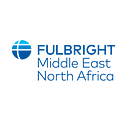A Journey Through Morocco: How My Workshops Helped Children Succeed in Schools All Over Morocco
After completing my Fulbright Program at the University of Texas in Austin, I was introduced to so many new ways of thinking that I was never exposed to before. Learning about the value of other cultures and the importance of becoming a global citizen changed me for the better. However, I didn’t want the feeling of discovery and curiosity to go away any time soon.
As a member of the Fulbright alumni network, I would often receive emails promoting grants and extra research opportunities. Since I participated in several research projects through my lab during my Fulbright Program, I was inspired to create a project that explored psychological and communication disorders in primary and secondary schools.
I decided to hold my project in both Tangier and Menkes in Morocco due to the alarmingly high rate of school dropouts in both primary and secondary schools. Part of this high dropout rate is a result of students not being properly diagnosed with the appropriate learning or communication disorder. I intended to not only create this project for students but also for teachers and parents to be able to properly recognize disorders in their children and learn how to help students succeed with the tools given to them from these workshops. Our training workshops for teachers and parents included education about detection and definition of different learning disorders, prevention methods, and ways of caring for children struggling with learning and communication disabilities. After the caregivers complete the workshops, the children also had the opportunity to receive the appropriate therapy from their local hospitals.
I was able to arrange a series of 16 workshops with a wide range of topics including: diagnosis and therapy for psychological disorders, communication disorders, dyslexia, and autism; raising awareness in teachers, parents, and the general public; nutrition and hygiene; and topics such as engineering, arts and crafts, theater, music, sports, and film. The addition of creative activities in the workshops was intended to create celebratory and enjoyable moments for the children instead of only providing information on diagnoses and therapy methods.
Each workshop session has a different structure depending on the goal of each session. For example, during a speech therapy session, I would sit down with a parent and their child and conduct an interview with the child in order to properly diagnose them. Then, I would write a letter to direct them to a proper therapist or specialist. In a more creative workshop such as a music education session, students would learn how to sing different nursery rhymes that allow the students to focus on components like rhythm, articulation, tone of voice, and breathing. Each session was carefully crafted to help the children with their specific needs.
Through this project, I was also able to collaborate with many academic faculty members to help execute this initiative. Each professional played an important role in the implementation of my workshops. For example, the regional academic administrators of the schools we worked in helped supervise the diagnosis portion of the workshops to learn about disorders within their schools. The school director helped us by signing partnerships with relevant stakeholders in order to produce enjoyable activities for each school’s students. The teachers helped guide the students to their correct diagnosis, and lastly, parents learned how to better accommodate their children to help them navigate their diagnosis.
This experience has helped me learn an array of new things. It was a great opportunity to learn how to bring together different community members and NGOs to help create a successful project for students in need. It was also very rewarding to learn that my project has helped so many people in various ways. Teachers now understand their students’ behaviors more deeply, which brings them to create a more comfortable learning environment for their students. Students now have an easier time in the classroom because their teachers understand how to properly treat them. Parents can now rest at ease knowing that their children will be properly cared for and that they know where to seek outside help if necessary.
I am so proud to be a member of both the Fulbright Alumni network and the ACAG community. I am forever grateful to the Fulbright Program for allowing me to help children in communities all over Morocco.
Bouzekri is a 2006 Fulbright Alumnus from Morocco. He received his PhD in Disorders at the University of Texas in Austin.
